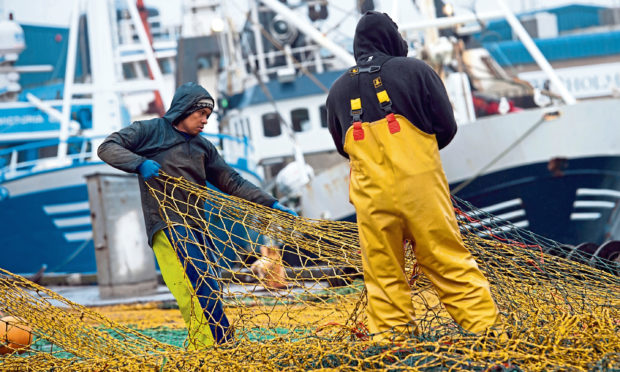Greenpeace has called for an end to a “wealthy cabal of fishing barons” which a new study commissioned by the organisation suggests owns or runs more than a quarter of the UK’s fishing quota.
New research by the environmental group’s investigative unit Unearthed has found that 29% of Britain’s access to fish stock is under the control of just five families, who are all on the Sunday Times rich list.
And in Scotland, the report showed the same five families had 33% of the quota.
Will McCallum, head of oceans at Greenpeace UK, said: “Successive governments have presided over a monumental mismanagement of this precious public resource – destroying the livelihoods of local, inshore fishermen, eroding coastal communities and encouraging unsustainable fishing, while allowing a wealthy cabal of fishing barons to become the UK’s ‘Codfathers’.
“How long before the Government stops blaming other countries, looks at its own broken system, accepts responsibility for fixing it and creates a fairer and more sustainable distribution of fishing quote across the UK?
“With the fisheries bill rumoured to be just weeks away, there has never been a better opportunity to do just this.”
The research reveals that the Peterhead-based Lunar Fishing Company, owned by Alexander Buchan and his family, owns or controls 8.9% of the UK’s quota holdings making it the biggest quota holder in the UK.
Robert Tait and his family, who own the Klondyke Fishing Company, have the third largest quota at 6.1% of the UK total.
And Sir Ian Wood and his relatives, who are worth an estimated £1.7billion, hold 1% of the UK’s fishing quota.
Bertie Armstrong, the chief executive of the Scottish Fishermen’s Federation said Greenpeace is carrying out a “hatchet job”. He said: “Once again, Greenpeace is guilty of painting a completely false picture of the UK fishing industry to match its particular prejudices.
“Sustainability has for many years been the number one priority for the industry, and many sacrifices have been made to reach the present position where key stock catches are at record or near-record high levels, while pressure on those stocks from fishing vessels is at a record low, as testified by a recent academic study.
“Studies also show that for pelagic species, large vessels which require massive capital investment are significantly more environmentally-friendly than a fleet of smaller vessels, not to mention safer in wild offshore winter seas where and when much of the catching of this type takes place.
“The only thing that has eroded our coastal communities is a blatantly inequitable EU Common Fisheries Policy which awards fishing nations 60% of our fishing stocks.
“Instead of focusing on the events of well over a decade ago to carry out a hatchet job, Greenpeace should be crediting the industry for its forward-thinking approach.”
